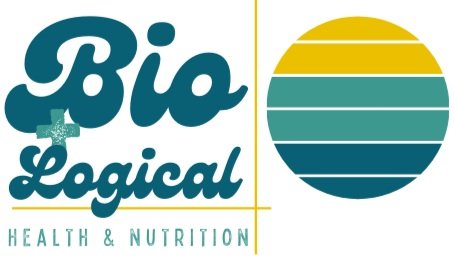So in the last few blog posts we've talked about how to eat healthy and ways to make healthier food choices for unhealthy foods by buying versions that contain less crap (DBS.) We've also talked about swapping out unhealthy versions of foods for ones that are much better for you (SOS.) These are all excellent strategies for planning ahead for unforeseen "hiccups" and you don't feel like cooking, or for when you or your kids want a snack. Anytime you can stock less bad "S" in your fridge, do it.
Today's topic: boost that shit (BTS.) This ties in nicely with SOS because now it allows you to really boost the nutritional content at mealtimes -often times without picky eaters ever knowing. Let's get right to it.
Exemplo 1: Liver and heart are some of the most nutrient dense foods on the planet, and I highly recommend eating them at least once a week. Most people -especially kids- don't care for liver. It has a taste you either love or hate (I've loved it since I was a kid.) Heart, however is like filet mignon. The heart is a muscle (yes, it's also an organ, but it's made of muscle tissue) As such, it's incredibly tender and tastes like steak. There's really no need to be squeamish about it. Let these be some of the first solid foods your kids transition to from breast milk, and they'll be much more likely to eat it on a regular basis as they grow up.
My favorite way to eat them is lightly seared in a cast-iron skillet with grass-fed butter and a pinch of Real salt (or Celtic or Himalayan is good too.) Cooked up with a handful of onions and some aioli on the side or a splash of quality balsamic vinegar...sooo good. I'm also a huge fan of patè, head cheese, liverwurst, and braunschweiger. If that's not your thing, then utilize the principles of BTS to work it in once or twice a week. How?
Burgers. Start with pastured pork, lamb, bison, or beef (or a mix.) Chop up a little liver and heart and mix it in, and I promise no kid (or adult) will ever know it's there. You may have to experiment to get the proportions right. While you're at it, mix in one or two pastured egg yolks for even more nutrition. Serve it on a bed of organic greens (skip the bun,) with grass-fed cheese or goat cheese, pastured bacon, avocado, grilled onions and tomato, homemade fermented pickles, and a side of aioli (homemade garlic mayo made with olive oil and pastured egg yolks.) Hell, for funsies add another pastured egg cooked in grass-fed butter on top of it all. I'm a professional. Trust me.
BTS with organ meats also works for meatloaf, meatballs, or making sausage (which was kind of the point of making sausage once upon a time - to use up all the nutritious dirty bits of the animal that people were too squeamish to eat on their own.)
The important thing is to be judicious in purchasing quality, pastured organ meats just like any other cut of meat. Whole Foods can be a good source, as can online sources (US Wellness Meats is a good one.) If you happen to be friends with someone who hunts, ask them to save you the heart and liver if they don't already eat it themselves and it hasn't been blown to pieces by the shot. This is how I fill my freezer with organ meats -from wild game hunting.
Organ meats are nature's multivitamins. One 4-6 oz serving of liver is enough to meet your weekly needs for pre-formed vitamin A (the kind your body needs, and especially helpful if you have skin problems,) B12, and copper. It's also high in other B vitamin like folate (B9,) iron, copper, zinc, biotin, and choline. Heart is also really high in many of these nutrients, but it's also the best source of CoQ10. If you have heart problems or are taking statins, you need CoQ10. CoQ10 is used in the electron transport chain for energy production and prevention of oxidative stress. (Interestingly, statins deplete this nutrient, which ends up exacerbating musculature problems -especially the heart.)
Exemplo 2: Like organs meats, pastured eggs are also superfoods. They contain high amounts of fat soluble vitamins A,D,E,and K, B12, folate, riboflavin, zinc, calcium, beta carotene, choline, omega 3 fatty acids, and of course -protein (the highest quality of any other food.) They're also a great source of the VERY important nutrient cholesterol. Yeah, cholesterol. I'll write about cholesterol in another post, because it's too long to go into here, but you've been lied to for the last several decades about cholesterol...it's a dietary requirement. If you're on a low or no cholesterol diet, there's probably a very good chance you're also suffering from hormonal issues, inflammation, and mental health problems like depression. FYI, cholesterol is only found in animal products...there are no plant sources, so vegans -beware.
Pastured egg yolks are perfect for mixing into all kinds of stuff to boost nutrition: guacamole, smoothies, popsicles, salad dressings, homemade nut milks, tuna salad, mac and cheese, and coffee (yes, coffee. I do 3 a day in mine.)
For the record, I don't usually consider mac and cheese a healthy food. But I've had a lot of parents ask about tips for feeding their kids, and mac and cheese seems to be a staple kid food. However, if you use gluten free noodles (or spaghetti squash or "noodles" made from zucchini,) grass-fed butter and cheese, and raw pastured egg yolks, suddenly you have a game changer. BTS even more by adding chopped broccoli or spinach. In fact, one of our favorite pasta dishes is carbonara: bacon or prosciutto or smoked, wild salmon, (or meatless) with sauteed onions, garlic, mushrooms, peppers, peas, and organic baby kale, spinach, and chard, with two or three raw egg yolks per person and grass-fed butter and cheese stirred in -basically mac and cheese, but boosted.
See how DBS, SOS, and BTS can dramatically alter the nutritional profile of the foods your kids like to eat, without having to give them up completely?
To find sources of locally raised meats, eggs, and other agricultural products, go to http://www.eatwild.com/products/index.html.
Exemplo 3: Smoothies and popsicles. What kid doesn't like smoothies or popsicles? Here's a great way to BTS out of something that's normally just a big serving of sugar. Start with organic frozen berries or bananas (or both.) Add either homemade nut milk, raw milk, or grass-fed yogurt (if you don't have dairy issues, obv.) You can also use cold-pressed juices like pomegranate, green tea, or herbal teas. Now BTS with some of the following: organic greens, raw egg yolks, small frozen pieces of heart or liver, coconut oil, avocado, raw cacao powder or nibs, almond butter, cashew butter, and a tiny bit of organic, raw honey or liquid stevia (personally I can't stand stevia) to sweeten.
BTS to the next level with things like collagen powder, grass-fed whey powder, grass-fed colostrum, mushroom powders, green powders, vegetable powders, turmeric, cinnamon...the list is endless, but I think you get the point. Just try not to go overboard, because remember -if it's going to be consumed, it also needs to taste good. Get this one down right, because the look on your kid's face when you offer him a popsicle everyday will be priceless.
Of course, it goes without saying that I heartily recommend a nutrient-dense diet that incorporates a metric crap ton of organic vegetables of all colors -particularly all dark greens, broccoli, beets, onions, and garlic, along with good quality fats and protein from animals who were raised in a quality environment (or wild) and ate a species-appropriate diet -at all times. For reasons outside the scope of this post, I'm not going to go into things like starches and grains. These are things I counsel my clients on based on their individual health issues and goals.
Diets can be negotiable...nutrition is not. If you're a grown-ass adult, you should be eating like one. Otherwise, spare everyone the stunned looks of bewilderment when you're diagnosed with heart-disease or diabetes...or any other number of dietary related diseases. After decades of shoveling toxic garbage down your cake-hole, what did you think was going to happen?
Every time you put the stabby end of a fork into your mouth, you're making a decision about the quality and longevity of your life. As I've said many times before, the foods you eat are broken down and woven into your physiological matrix. Your food literally becomes you. Make sure you incorporate clean, quality, nutrient dense, real food into your diet on a regular basis. For the times when it's a little more difficult, as long as you adhere to the principles and practices of DBS, SOS, and BTS, you'll be solid gold.
Have any questions or comments about DBS, SOS, or BTS? Fire away.
Hasta luego, freaks.

